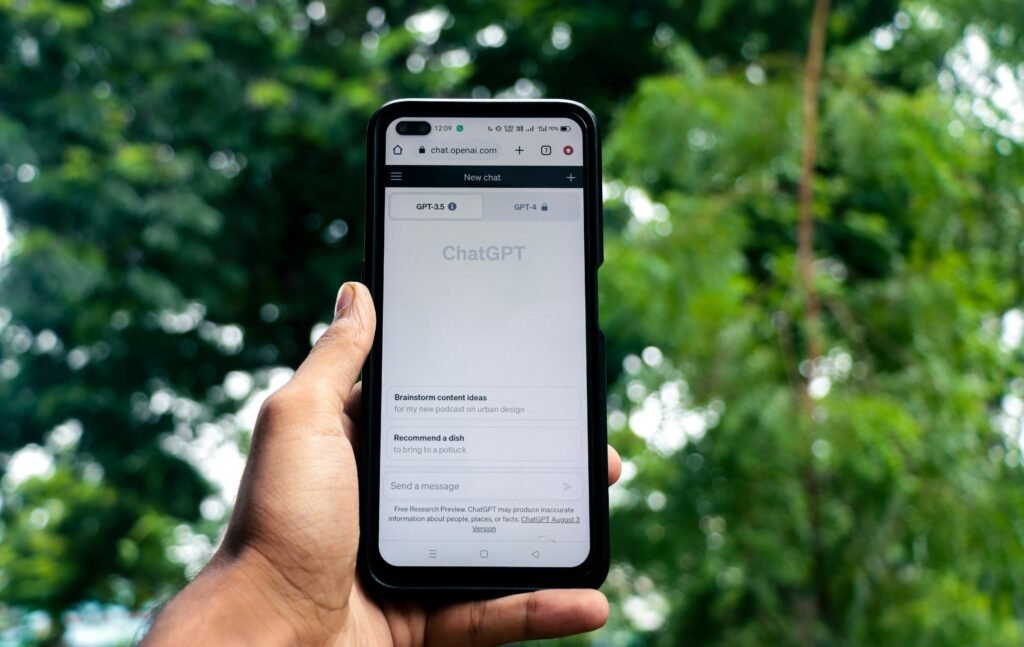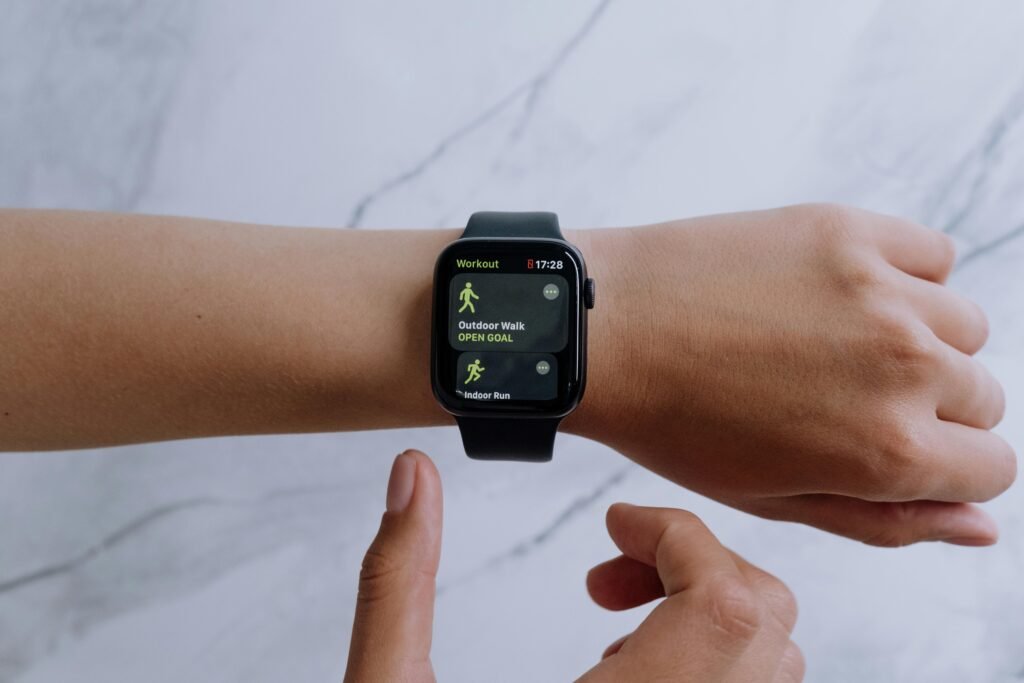
Introduction to AI and Personal Growth
Artificial intelligence is reshaping how we approach personal growth, offering tools that are more adaptable and responsive than ever before.
By leveraging advanced algorithms, AI is helping individuals identify areas for improvement and develop strategies tailored to their unique needs and aspirations.
This innovative use of technology is empowering people to take charge of their development in ways that were once unimaginable.
One of the most significant advantages of AI in personal growth is its ability to provide a truly individualized experience.
Traditional self-help methods or generic plans often fail to address the nuances of an individual’s circumstances, but AI-driven solutions can bridge this gap.
These systems analyze personal data, such as habits, preferences, and goals, to craft plans that align with an individual’s specific journey.
This customized approach allows users to focus on what matters most to them, whether it’s building confidence, learning a new skill, or improving time management.
The accessibility of AI also plays a critical role in its impact.
Many people now have access to tools that help them track progress and set achievable milestones, all from the convenience of their devices.
For example, AI life coaching platforms offer continuous support and actionable insights, ensuring users stay motivated and engaged throughout their journey.
These tools adapt dynamically, providing updates and recommendations as progress is made, creating an experience that feels both supportive and empowering.
Another area where AI is driving change is in its ability to help users uncover patterns in their behavior that they might not have noticed on their own.
By analyzing trends and offering evidence based suggestions, AI can highlight opportunities for growth that align with personal values and priorities.
This kind of feedback not only saves time but also makes the process of self-improvement more efficient and targeted.
The role of artificial intelligence in personal growth extends across various aspects of life, demonstrating its versatility and potential.
Whether applied to professional development, relationship-building, or enhancing daily routines, AI tools are paving the way for more meaningful and effective growth experiences.
AI-Driven Personalization

AI’s capacity to create highly personalized growth strategies lies in its ability to process extensive amounts of individual data with remarkable speed and accuracy.
By analyzing factors such as a user’s strengths, preferences, and areas needing improvement, these systems can design tailored blueprints to support personal growth goals.
The flexibility and responsiveness of AI tools make them particularly effective in catering to diverse needs, enabling individuals to focus on their unique aspirations without relying on generic or one size fits all solutions.
One area where this approach shines is in education.
AI-powered platforms, for instance, can adapt learning materials and teaching methods to suit individual learning styles.
This allows users to engage with content at their own pace, enhancing comprehension and retention.
Beyond traditional academic settings, these tools can help professionals gain new skills by identifying their existing knowledge gaps and recommending customized training resources.
Such targeted guidance not only streamlines the learning process but also motivates users to pursue continuous self-improvement.
AI’s versatility also extends to the health and wellness space, where apps are revolutionizing fitness and nutrition planning.
These tools evaluate factors like physical activity levels, dietary habits, and personal schedules to create exercise routines and meal plans that are realistic and sustainable.
Users benefit from strategies that adapt as they progress, offering a level of personalization that encourages long-term commitment.
For example, an AI-powered fitness app might recommend a low impact workout for someone recovering from an injury, gradually increasing intensity as their fitness improves.
Similarly, nutrition plans can be tailored to dietary restrictions, ensuring users can meet their goals without sacrificing their individual needs.
AI life coaching platforms represent another powerful example of how technology can drive personalization.
These platforms provide tailored advice, actionable recommendations, and consistent feedback to guide users through their personal growth journey.
By continuously analyzing data and incorporating real time feedback, AI can refine its suggestions, keeping users engaged and on track toward their goals.
Additionally, AI tools are becoming increasingly adept at understanding human behavior.
By identifying patterns in user habits, these systems can highlight opportunities for growth that might otherwise go unnoticed.
For instance, someone aiming to improve their time management might receive insights on how they spend their day, along with suggestions for small adjustments that can make a significant impact.
This ability to provide data driven recommendations ensures users receive practical and actionable advice, saving time and effort in their self-improvement journey.
The adaptability of AI tools is particularly appealing to younger, tech savvy audiences who appreciate fast, intuitive solutions.
By aligning with the preferences and expectations of this demographic, AI systems are helping to make personal growth more approachable and relevant to modern lifestyles.
AI’s ability to personalize also comes into play when helping individuals set realistic and achievable goals.
For example, instead of recommending generic objectives like “be more productive,” AI systems can suggest specific tasks that align with a user’s daily routines and priorities.
This level of detail ensures that progress feels manageable and tailored to the individual, reducing the risk of burnout or discouragement.
Case Studies of AI in Action

AI’s role in personal growth becomes even clearer when examining specific examples where it has driven meaningful outcomes.
In education, AI has introduced tailored learning experiences that adapt to individual student needs, offering resources and strategies aligned with their pace and style.
This approach is particularly transformative in areas with limited access to traditional educational tools.
By identifying knowledge gaps and adjusting content delivery, AI platforms support learners in mastering subjects efficiently and confidently, regardless of their starting point.
Health and fitness is another area where AI’s personalization capabilities shine.
Many users turn to AI-powered apps to design workout routines and diet plans that align with their goals and lifestyles.
Unlike one size fits all programs, these tools take into account a user’s current fitness level, dietary preferences, and available time.
For example, someone with a busy schedule might receive quick but effective workout suggestions or meal prep plans that fit seamlessly into their day.
These customized solutions have helped countless individuals make lasting changes, improving not just their physical health but also their overall well-being.
AI-driven mental health tools are also gaining traction, offering support in ways that were previously less accessible.
Apps equipped with AI features provide guided mindfulness exercises, mood tracking, and even stress management techniques tailored to individual patterns.
For instance, an AI system might detect a user’s rising stress levels based on interaction history and suggest relaxation exercises or offer practical tips to mitigate the pressure.
Such interventions are not only immediate but also highly relevant, allowing users to regain balance and focus in their daily lives.
In the professional sphere, AI tools are reshaping how individuals approach skill development and career growth.
By analyzing career trajectories, AI can recommend specific learning paths or certifications to help users advance in their fields.
For instance, an AI system might suggest leadership courses to a professional aiming for a managerial role or highlight areas for improvement based on performance data.
This targeted approach makes career progression more efficient, providing users with actionable steps that align with their ambitions.
The impact of AI is also seen in goal setting and habit building.
Platforms designed for personal productivity use AI to analyze how users spend their time and recommend strategies for improvement.
For example, an app might identify patterns of procrastination and suggest small, manageable steps to enhance focus and efficiency.
Users benefit from actionable feedback that helps them make better use of their time without feeling overwhelmed by drastic changes.
This precise approach allows individuals to tackle challenges in a way that feels achievable and personalized.
These case studies highlight the variety of ways AI is being used to support personal growth across different areas of life.
From education to health, mental well-being, and professional development, AI tools are helping people address unique challenges and achieve their goals with solutions that feel both effective and relatable.
Challenges and Considerations

While AI tools are proving to be powerful resources for personal growth, they also come with their own set of challenges and considerations.
One of the key concerns is privacy.
Since AI systems rely on analyzing personal data to provide tailored insights, there is an inherent risk of data misuse or breaches.
Many users are rightfully cautious about sharing sensitive information and want assurance that their data is handled securely and responsibly.
For AI tools to be trusted, companies must implement robust data protection measures and maintain transparency about how user information is collected, stored, and used.
Another important consideration is the potential for over-reliance on AI-driven solutions.
While these systems can offer valuable insights and recommendations, they are not substitutes for human expertise or personal judgment.
AI-generated plans may lack the context or emotional understanding needed to fully address an individual’s goals or challenges.
This is particularly important in areas such as mental health or career advice, where nuanced human input can significantly influence outcomes.
For AI to be effective in these spaces, it needs to work in tandem with human oversight, ensuring that the suggestions it provides align with the user’s unique values and circumstances.
Accessibility and inclusivity also present challenges for the widespread adoption of AI tools.
The adoption of AI tools like ChatGPT shows a gender disparity, with 66% of users being male.
This gap raises questions about whether AI solutions are equally appealing or relevant to all demographics.
Developers need to ensure that these tools are designed with diverse users in mind, incorporating a variety of perspectives to better address the needs of different groups.
Making AI tools more accessible, both in terms of usability and affordability, is essential for fostering a more equitable user experience.
The accuracy of AI predictions and recommendations is another area of concern.
Since AI relies on algorithms trained on large datasets, its effectiveness is only as good as the quality of the data it uses.
If the input data is biased, incomplete, or outdated, the insights provided by AI systems may be inaccurate or skewed.
This can lead to plans or recommendations that are not truly aligned with a user’s needs or goals.
Developers must actively work to minimize these issues by refining algorithms and ensuring datasets are diverse, current, and unbiased.
Additionally, there’s a risk that users may interpret AI recommendations as definitive answers rather than suggestions.
This misconception can lead to unrealistic expectations or frustration if outcomes don’t align with predictions.
It’s important for users to understand that AI is a tool meant to assist rather than dictate their personal growth journey.
Clear communication about the limitations and intended use of AI tools can help manage expectations and encourage users to approach these technologies as part of a broader strategy for self-improvement.
Finally, the ethical implications of AI in personal growth deserve careful attention.
For instance, when AI is used to track and analyze behavior, there’s a fine line between helpful feedback and intrusive monitoring.
Users may feel uneasy about how much information AI systems are collecting and whether this data could be used in ways they didn’t agree to.
Ethical design practices, such as giving users control over their data and allowing them to opt out of certain features, are crucial for maintaining trust and promoting responsible AI use.
While these challenges are significant, addressing them head-on is critical to ensuring that AI continues to serve as a valuable tool for personal development.
By prioritizing privacy, inclusivity, and transparency, developers can create systems that truly empower users while minimizing potential risks.
Furthermore, combining AI capabilities with human judgment allows for a more balanced and effective approach, maximizing the benefits of technology without overshadowing the importance of personal agency.
The Future of AI in Personal Development

The future of AI in personal development is brimming with opportunities to further enhance how individuals achieve their goals.
With rapid advancements in AI technology, the scope for more refined and effective self-improvement tools is expanding.
As these systems evolve, they are expected to become even better at understanding the complexities of human behavior, delivering solutions that feel both intuitive and impactful.
One area poised for significant growth is the ability of AI to integrate seamlessly with emerging technologies.
For instance, wearable devices and IoT (Internet of Things) technology could provide real time feedback to AI systems, enabling them to craft highly adaptive personal growth strategies.
Imagine an AI tool that combines data from your fitness tracker, work calendar, and sleep monitor to recommend a comprehensive plan tailored to improving productivity, wellness, and balance in your daily life.
Such advancements would further personalize the experience, making AI tools indispensable for users seeking holistic growth.
Additionally, AI’s capacity to process unstructured data, such as text and voice, is continually improving.
This means that future AI systems could analyze a broader range of inputs, such as journal entries, emails, or recorded conversations, to identify emotional patterns and offer nuanced recommendations.
These systems could detect stress or burnout signals and suggest actions like adjusting priorities or incorporating mindfulness exercises.
This evolution will push AI beyond practical guidance, offering support that resonates on a deeper, emotional level.
The role of AI in promoting inclusivity and accessibility in personal development is also likely to expand.
As developers continue to refine their tools, efforts to address gender, cultural, and socioeconomic disparities will become increasingly important.
For instance, AI platforms may include multilingual support or customizable features that reflect diverse values and lifestyles, ensuring their relevance across a broader spectrum of users.
This adaptability will help remove barriers to personal growth, making AI tools accessible to those who might otherwise face challenges in pursuing self-improvement.
Moreover, the integration of AI with augmented reality (AR) and virtual reality (VR) could revolutionize how users engage with personal growth tools.
For example, VR environments powered by AI could simulate real life scenarios, allowing individuals to practice skills such as public speaking or conflict resolution in a safe, controlled setting.
These immersive experiences could boost confidence and prepare users for real world challenges, adding an entirely new dimension to self-improvement efforts.
Ethical advancements in AI will also play a critical role in its future impact on personal development.
Developers are increasingly prioritizing transparency and user control, giving individuals the ability to manage their data and customize the level of interaction they have with AI systems.
These practices will not only build trust but also empower users to feel more in control of their growth journey.
As AI technology continues to improve, its potential to reshape personal development seems limitless.
Whether by enabling more precise goal setting, fostering inclusivity, or leveraging cutting edge innovations like AR and IoT, AI is set to become an even more integral part of how people achieve meaningful progress in their lives.
Projections suggest that AI platforms like ChatGPT will surpass 1 billion users by 2025.
These advancements signal an exciting future where AI helps individuals unlock their full potential with solutions that are personalized, innovative, and forward thinking.
